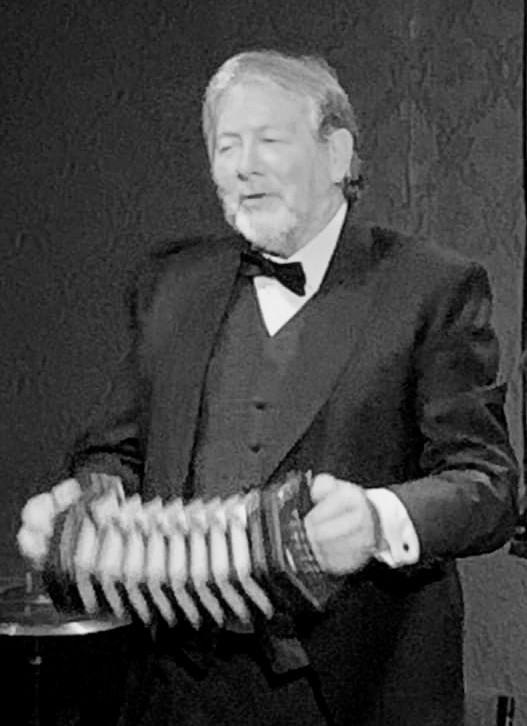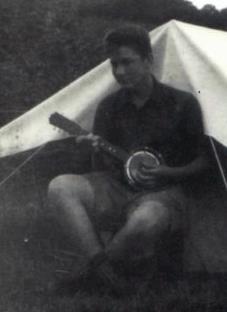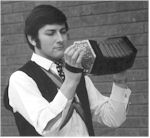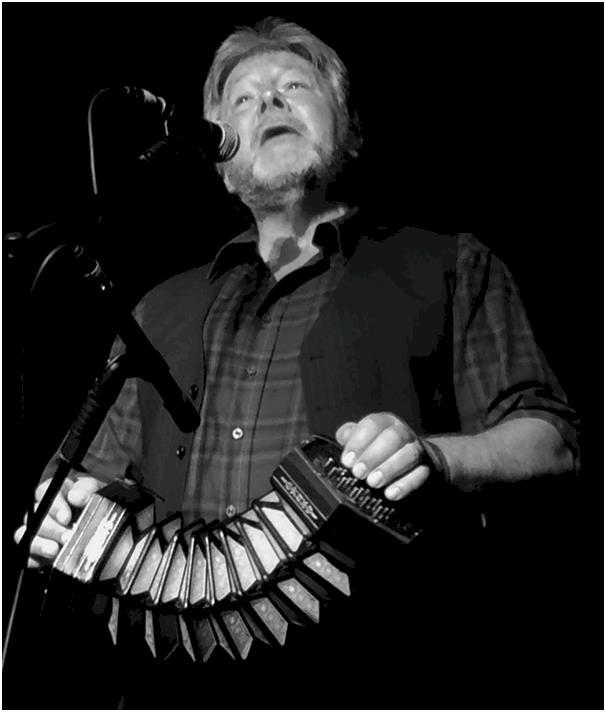



I sing and play mainly traditional English songs and tunes - I've nothing against Irish, Scottish or American music and sing a number of songs from these cultures, but I'm English and I feel that these songs are 'mine', both to enjoy and to pass on. There is no longer an oral tradition in England, but that is how Iearned most of my songs: from listening to other singers, live and recorded, and especially, as a child, to "Singing Together" on the BBC at school.
Of course I never realised that these were folk songs; as a teenager I thought that folk songs were American as sung by Wally Wyton, Lonnie Donegan, Burl Ives, Pete Seeger and Lee Hayes!
When I was fourteen I learned ‘Five and Twenty Ponies’ from the fisherman uncle of a classmate in Hastings and admit to being a bit disappointed when I discovered that it had been written by Rudyard Kipling, but I had learned the words and the tune in a very traditional way by simply listening to an older singer and then making it my own.
Traditional songs were all originated by someone, even if not written down - the great thing is that they are passed on from singer to singer who each make the song their own by memorising it and then performing it from memory. The songs and the tunes get changed a little by this process - it’s a living tradition!have recorded some of the songs that I particularly like and tend to group them together in 'sets' around a theme rather than sing a random selection - you'll find a few of the themes below.
Music
Cambridge Folk Festival 2016
Black Fen Folk Club 2020
Aldbury Morris - 1970
Aged about 13 with my Dad's Mandolin Banjo
Most of the songs I sing are ‘stories’, a few true and factual, but mostly made up for entertainment in the home, the alehouse or forecastle. The story is always the main event and I believe that accompaniments should be just that - simple basic accompaniment to the story that I’m telling.
I started off with the mandolin and the mandolin banjo - they were around the house and strung left handed because that's the way he played them in his 'Blackface Minstrel' troup. He very strongly disapproved when I bought a guitar (aged about 14) with money earned from gardening; he said it would never last. I played that left handed until I started meeting up with other lads with guitars - and of course I wanted to play them so I relearned!
I bought a Crabb anglo concertina when I was 20 after hearing Bert Lloyd. I went to the shop in Islington not knowing anything about concertinas but just wanting one and he sold me the anglo you see in the 1970 picture. I had to sell that in 1974 and didn't own another until about 1992. Since then the concertina has gradually become my accompaniment of choice for many of my story songs whilst the Appalachian Dulcimer works well for a few songs that benefit from a simple melody and 'drone' accompaniment. I’ve always kept my guitar accompaniments simple and sparse so that it is always subordinate to the song. If you can’t catch all the words, then I’m wasting my time!
Where I feel that the accompaniment detracts or distracts from the main event, then I’ll sing the song unaccompanied - many of the old songs are much better that way!
You can find a selection of songs and a few tunes on the Songs page...........




